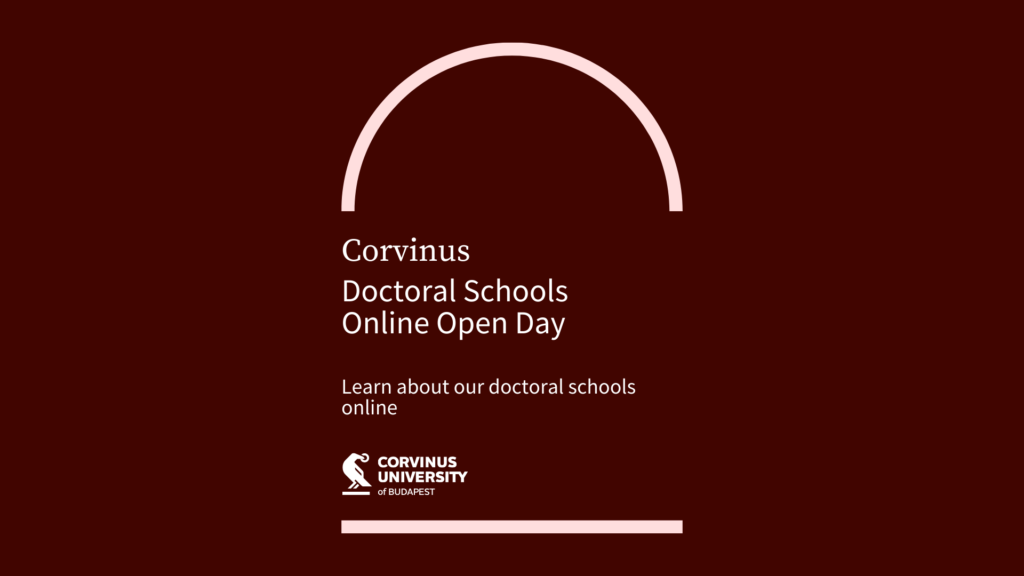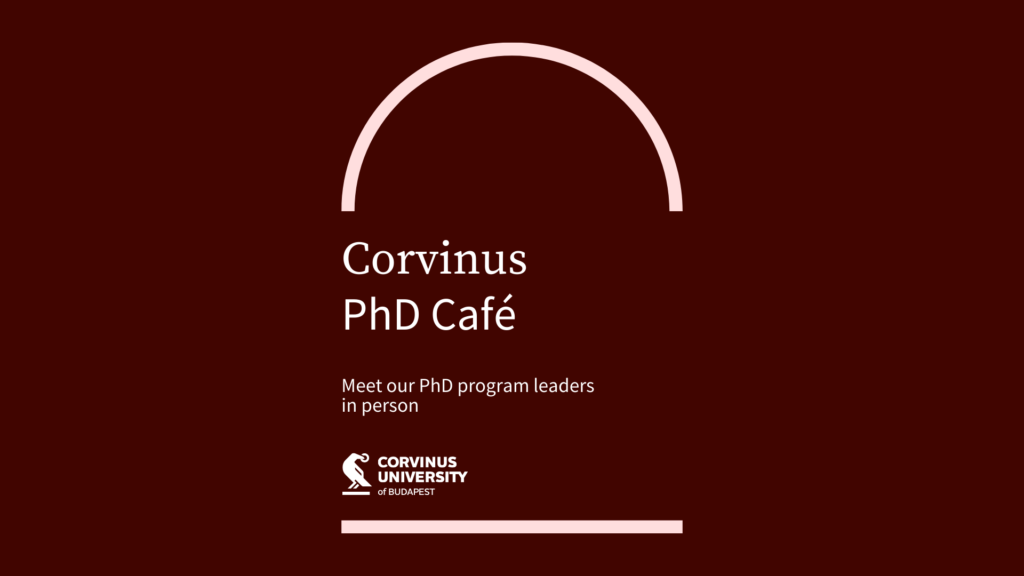
Corvinus Doctoral School’s Online Open Day 2025
Are you interested in a PhD? Do you have questions about admissions? Join our Online Open Day, where the heads of our doctoral schools will share their insights and we will answer your questions!
The World Economics Doctoral Program was launched more than 30 years ago, by internationally renowned and acknowledged professors of world economics and development studies. During the past decades several outstanding researchers and lecturers contributed to the program’s success. Among the current and former lecturers of the Doctoral Program we can highlight four distinguished professors, who are members of the Hungarian Academy of Sciences: Tamás Szentes, Tibor Palánkai, Mihály Simai (Department of World Economy) and László Csaba (Department of Comparative and Institutional Economics). The main profile of the World Economics Doctoral Program is world and development economics, but its research portfolio includes integration theory, economic governance and technology, globalization, regional/area studies, comparative and institutional economics. The Program is taught by professionals who are well-known and successful in their fields.

Director of Doctoral Program

Head of Doctoral School

Are you interested in a PhD? Do you have questions about admissions? Join our Online Open Day, where the heads of our doctoral schools will share their insights and we will answer your questions!

Subscribe to our newsletter to automatically receive the latest information on further education and admissions!
Questions about the admission procedure are welcome at the e-mail address phd.office@uni-corvinus.hu.
The research topics are closely connected to the Program’s profile and they are meant to further deepen the focus on the respective areas.
Topics include:
• International Economics
• International Finances
• World Economics
• International Political Economy
• Regional Studies and Economy
• Development Economics and Studies
• European Economic Integration and Governance
• Institutions of the European Union
• Globalization and Technology
• Institutional Economics
• Comparative Economics
The World Economics Doctoral Program aims to guarantee that students gain international experience, get to know international standards and become able to comply with these standards throughout their time spent in the Program. PhD students participating in the Doctoral Program’s international research have the opportunity to present their findings internationally. The Program’s leaders and tutors have an extensive network of international partners; therefore, motivated students are able to actively participate in research even on the international level. The quality of joint research is often proved by the numerous publications – often in collaboration with the respective supervisors, or with their guidance.
The World Economics Doctoral Program supports PhD candidates who are motivated and willing to join international projects. Examples for such projects include Fatigue and Poprebel which both have provided opportunities for students to participate in international conferences and workshops.
The World Economics Doctoral Program is a member in several international organizations, such as:
The World Economy Doctoral Program and the Institute of World Economics at the HUN-REN Centre for Economic and Regional Studies have been working together for several years to give doctoral students the opportunity to get involved in researches at the Centre and allows them to gain experience in fields that are closely related to their dissertations. Furthermore, they can also take part in the conferences, workshops and other events that are organized in the Centre for Economic and Regional Studies. These experiences can contribute to the successfully prepare and defend the doctoral dissertations.
Documents to be submitted:
• Research proposal (max. 8000 characters without literature, which should not exceed 10 items), including the research question, methodology, knowledge about the state of art and the relevance of the research, and its consistence with the research focus of the Doctoral School of International Relations and Political Science.
• Curriculum vitae, including previous research, awards, publications (if any), the title of the Master’s thesis, language proficiency. Applicants should write a paragraph about their motivation.
On the basis of the submitted documents the Doctoral School makes a preselection decision. Applicants invited for an oral interview should be avalaible via Teams or Skype. Questions will be asked concerning the details of the research plan, motivations, previous research experiences. The date of the interview will fall at the second half of April, to be fixed later.
The final decision is made by the University Doctoral Council at the end of May.
Subscribe to our newsletter to automatically receive the latest information on further education and admissions!
Questions about the admission procedure are welcome at the e-mail address phd.office@uni-corvinus.hu.
Office: Building C room 423.

Director of Doctoral Program

Doctoral Study and Administration Expert

Head of Doctoral School

Doctoral and Habilitation Procedures Expert